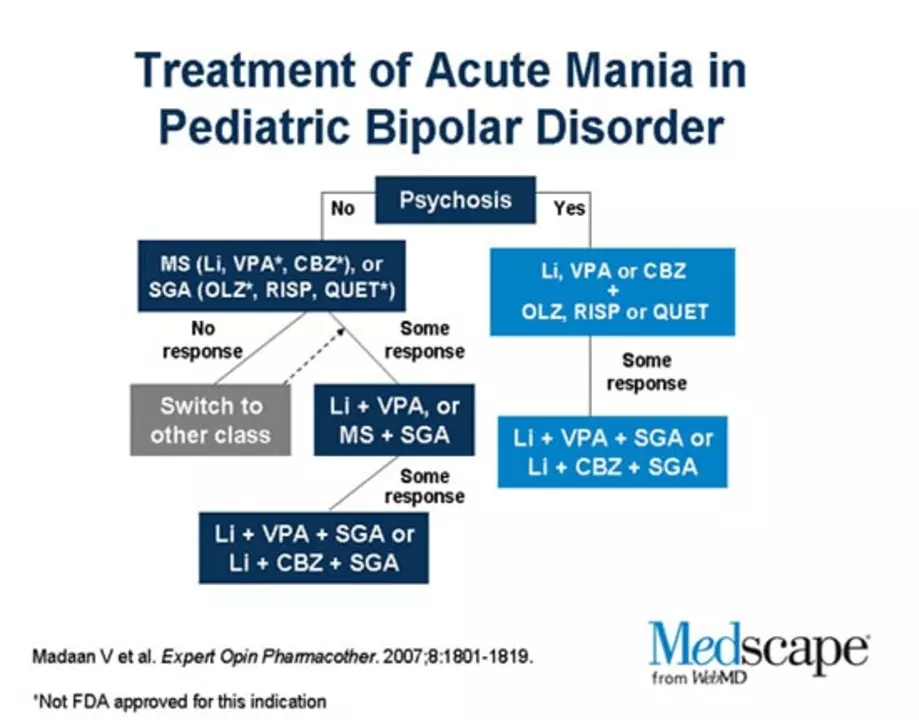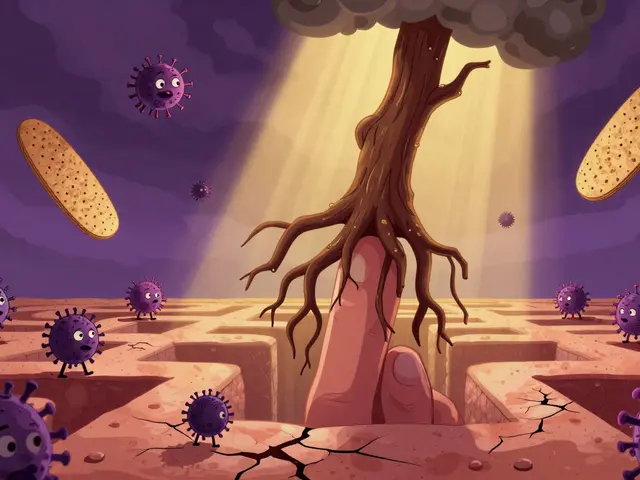Mental Health
Mental health matters every day. On this page you'll find clear, practical articles about conditions, treatments, and how to get help. If you or someone you care about is dealing with symptoms, the right information can make the next step less confusing.
Treatments & Meds
Want straight talk about medications? We cover how drugs work, what recent studies show, and common side effects people notice. For example, one post looks at selegiline — a Parkinson's drug researchers are studying for schizophrenia. That article explains how selegiline affects dopamine, why that might help certain symptoms, and why more research is needed before it becomes standard practice.
When reading about treatments, focus on two things: evidence and safety. Look for studies with clear results and watch for known risks. If a post mentions a study, it will explain what kind of study it was and what the findings actually mean for a real person. Always talk with your doctor before changing meds.
Awareness & Support
Mental health isn't just medicines and diagnoses. Stigma keeps people from asking for help. Our coverage of OCD stigma, for example, explains how simple education and open conversations reduce shame and encourage treatment. We share practical tips you can use with friends or family—what to say, how to listen, and where to point someone for professional support.
Looking for support options? We describe types of therapy, what to expect from counseling, and how to find crisis resources. If you're worried about immediate danger, the posts remind you when to call emergency services or a crisis hotline and how to keep someone safe until help arrives.
Each article is written so you can act on it. You won't find medical jargon that hides uncertainty—just clear takeaways like when to see a psychiatrist, what questions to ask, and how to weigh treatment pros and cons. We also highlight lifestyle steps that matter: sleep, routine, and regular contact with supportive people.
Want to learn more? Start with our selegiline and schizophrenia post if you're curious about new medication options. Read the OCD awareness article if you want tools for reducing stigma and helping someone find care. Both pieces show the kind of practical, evidence-focused coverage we aim for here.
Questions or suggested topics? Reach out through the site. We update posts when new research appears, so come back to see the latest findings and tips for managing mental health in real life.
Fluoxetine for Panic Disorder: How It Reduces Symptoms
Learn how fluoxetine, an SSRI, helps reduce panic disorder symptoms, dosage tips, side effects, and how it compares to other treatments.
Selegiline and its potential role in treating schizophrenia
In my latest blog post, I explored the potential role of Selegiline in treating schizophrenia. This drug, typically used for Parkinson's disease, has been showing promising results in recent studies for alleviating symptoms of schizophrenia. Selegiline works by inhibiting the breakdown of dopamine, which is believed to have an impact on the positive and negative symptoms experienced by patients with schizophrenia. While more research is needed, Selegiline could potentially become a new treatment option for those suffering from this complex mental illness. Keep an eye out for updates on this fascinating development in the world of mental health!
The Importance of Mental Health Awareness in Reducing OCD Stigma
As a blogger, I can't stress enough the importance of mental health awareness in reducing the stigma surrounding OCD. By educating ourselves and others about the realities of this disorder, we can foster empathy and understanding, ultimately breaking down the barriers that prevent people from seeking help. I've seen firsthand the power that knowledge and open conversations have in dismantling misconceptions about OCD. Mental health awareness not only encourages those who are suffering to seek support, but it also helps create a more inclusive and compassionate society. Let's continue to raise our voices and normalize conversations about mental health, so that together, we can erase the stigma and support those who need it most.







